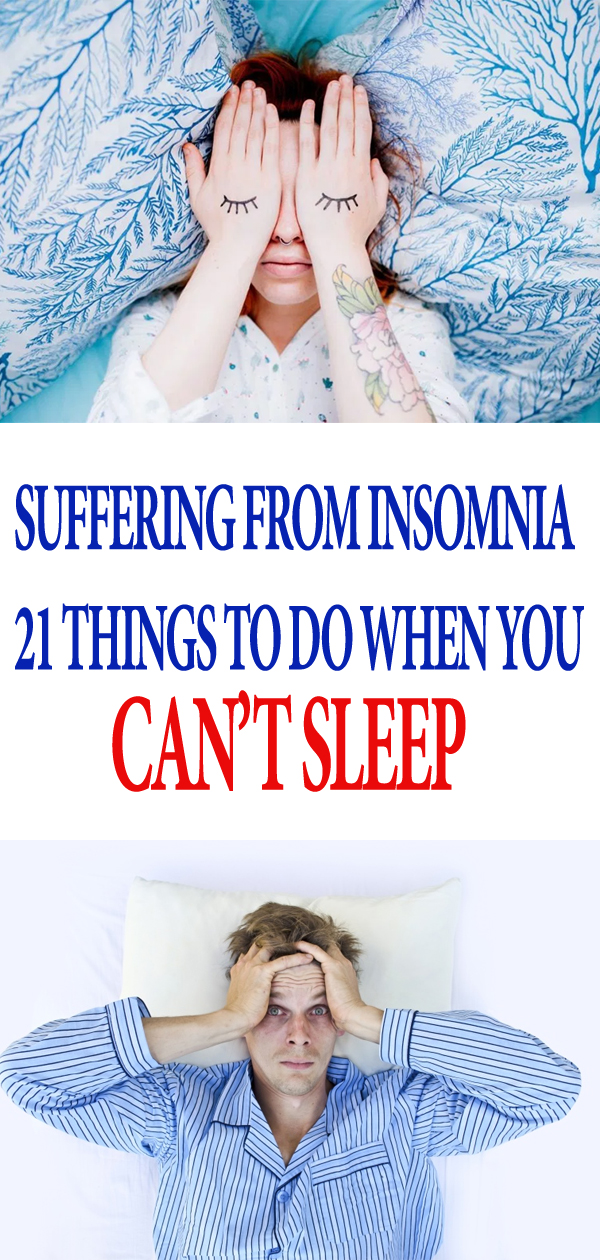Insomnia has become pandemic. “Why can’t I sleep!” is the 2 a.m. cry of frustration and desperation from millions of bedrooms around the globe. How can you change your lifestyle or bedtime habits to relieve your own insomnia symptoms and remove your name from the list of sufferers?
No one enjoys the results of missed sleep, even for only one night. For those who suffer sleeplessness on a regular basis, there is ever-growing hope for finding a natural solution. If you are searching for relief from persistent insomnia without prescribed medications, there are a variety of ways to make a good start.
There’s a long list of do’s and don’t’s to consider. Insomnia can be caused by what you do, what you eat, and even your sleeping environment. Insomnia symptoms may be greatly reduced by changing only one or two bedtime habits, or it may require a major lifestyle commitment to alleviate the causes of sleeplessness.
Let’S Consider 21 Activities Or Habit Changes That Could Cure Your Insomnia.
Relax
1. Allow Time To Wind Down.
Give yourself at least 30 minutes to take control of your thoughts and calm your body for sleep. Dim the lights. Create a bedtime routine that helps you shift gears from the activities of the day to rest. Prepare yourself mentally to lie down and relax.
2. Breathe.
Alleviate insomnia symptoms with deep breathing exercises to slow your metabolism and calm your thinking and emotions. Purposely slow your breathing with deep, cleansing breaths. Research different breathing exercises to find which ones will best help you relax.
3. Read A Book.
Avoid heavy reading, but choose something enjoyable that can help put your mind at ease (and no ebooks, either). Read good, old-fashioned paper books. The artificial light emitted by electronic devices will not help your psyche know it’s bedtime. Light or inspirational reading will help your mind relax and focus on positive thoughts.
4. Journaling
Many experts verify the benefits of taking 10-20 minutes to chronicle the positives of the day. Write things you are thankful for or what you enjoyed. Don’t underestimate the power of the little things to help change your perspective and end the day on an upbeat note.
5. Think Happy Thoughts.
That’s right. Go to your happy place. Picture your favorite scenery or the face of a loved one. Dwell on people, places, or activities that you enjoy. Focus on the moment, not on the long list of goals you must reach tomorrow. A good night’s sleep will get those creative juices flowing when you need them.
Watch What You Eat And Drink
6. Avoid Heavy Meals.
Evening meals heavy in carbs are not a good idea if you want a good night’s sleep. Try to eat a light dinner at least four hours before bedtime. Also, avoid spicy foods or foods that you know may upset your stomach.
7. Avoid Caffeine And Alcohol.
If you are a habitual coffee drinker, enjoy your last cup at least 4-6 hours before bedtime. The stimulant effects of caffeine need to be well out of your system before you try to sleep. Also, although alcohol may seem relaxing, it can lead to waking during the night. Cigarettes should also be avoided too close to bedtime, as nicotine can also be disruptive to sleep patterns.
8. Try A Soothing Drink.
A relaxing herbal drink, such as chamomile tea, may help you begin to relax. There are several alternatives to coffee that can help soothe and relax you at bedtime. However, you need to limit fluid intake in order to avoid being awakened by the need to go to the bathroom.
9. Bedtime Snacks.
We all get those cravings for a bedtime snack. If you feel in need of a treat, choose a healthful snack that will help to satisfy your cravings while aiding your body’s ability to sleep better. When you do snack, do so wisely and at least 45 minutes before bedtime.
10. Try Natural Supplements.
Along with herbal remedies, there are a number of natural supplements that have been shown to calm the brain’s activity while promoting the production of helpful hormones. For example, adding a recommended dose of melatonin or magnesium to your evening routine may help you achieve a deeper, more effective night’s sleep.
Create A Restful Sleep Environment
11. Turn Off Electronic Devices.
To your brain, the blue light produced by PCs and tablets is similar to sitting in bright daylight. So turn off TVs, laptops, and other electronic devices. Darken the space where you sleep as much as possible. The brain is programmed to recognize darkness as the time for rest.
12. No Working In Bed!
Don’t bring work projects into your sleeping environment, where they may contribute to stress and make it difficult to slow down your thinking processes. Make your bedroom a safe zone, where the deadlines and demands of the workplace are not allowed to worry you. If you are a person prone to many projects, give them an area of their own outside of your sleeping space.
13. Control Your Pets.
This is a tough one. You love your pets, but if they are keeping you from sleeping well with their nocturnal activities, it’s time to address the issue. If necessary, you may have to move your pets to separate sleeping quarters. Or maybe other family members would be less disturbed by the movement of your animal friend.
14. Try Aromatherapy.
For some, a calming, pleasant aroma can bring almost instantaneous relaxation. Certain odors have been found to help settle brain activity so sleep comes easier. If you decide to try this method, make sure your bedroom is well ventilated and there is no danger of fire.
15. Plants.
Certain plants, such as aloe vera or snake plants, are known for their ability to increase oxygen levels, relax brain activity, and even remove toxins or allergens from the air. Many of these healthful plants are easy to grow, but if you have a green thumb, you may decide to experiment with some of the more exotic, air-purifying plants.
16. Adjust Room Temperature.
For a more comfortable night’s sleep, a bedroom temperature of between 60-75 degrees Fahrenheit is recommended. Your body’s temperature fluctuates during sleep, and a cooler temperature is more conducive to deep rest. An overly warm room lowers the comfort level for your body during the sleep cycle.
Establish A Bedtime Routine.
17. Schedule Your Sleep Time.
Besides demanding a winding down period each evening, set both a bedtime and wake-up time for each day. You can program your brain to know when it’s time to start gearing down for rest. Keeping a regular sleep schedule can eliminate many of the causes of insomnia.
18. Daily Exercise.
Maintaining some kind of daily exercise routine can greatly increase your chances for a deeper, more restful sleep. It’s better to exercise early in the day, but if that’s not possible, just include some physical activity sometime during each day. Our bodies were made to move, so using up that excess energy will give your body even more reason to recover during sleep.
19. Avoid Naps.
Avoid taking naps if at all if possible, and never nap late in the afternoon. If you begin to feel overly tired, try a power nap of about 20 minutes early in the day. Too much sleep during the day can lead to insomnia symptoms during the night.
20. Get Comfortable.
A comfortable mattress and pillow can make all the difference between sleep and insomnia symptoms. A mattress and pillow that will adequately support you in the position you most often sleep are worth the investment. If you are able to, adjust your sleep position to one that will help achieve optimum sleep.
21. Allow The Right Amount Of Sleep Time.
Either too little or too much sleep can be detrimental to your health. How much sleep is needed depends a great deal on your age. Studies show adults between 18-65 years old require 7-9 hours of sleep per night, so make sure you allow this amount of time in your daily routine.
Final Thoughts
Insomnia affects every part of the body, every kind of tissue and every internal system. Although it may seem that you relax into sleep, your mind and body are actually quite active during this time. Researchers agree there’s still a lot to learn about what happens during sleep and why it’s so important to the mind and body, but the detriments of insomnia are easy to see and miserable to experience.
If you are struggling with insomnia symptoms, don’t ignore them. If it seems you have tried everything and you still can’t sleep, don’t hesitate to contact your doctor or a sleep specialist for further help. These experts may have more suggestions to fit your particular situation.
Insomnia is a serious disorder. For your own well-being and quality of life, don’t let the condition continue unaddressed. Help is out there, so relax. It’s time for a good night’s sleep.


